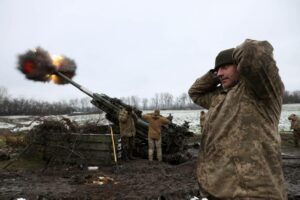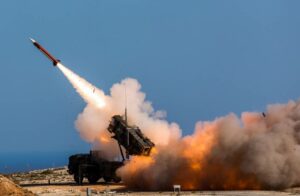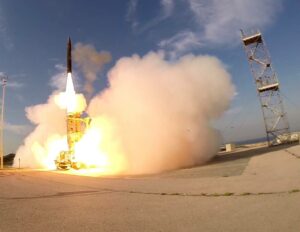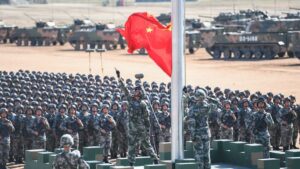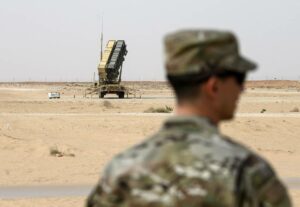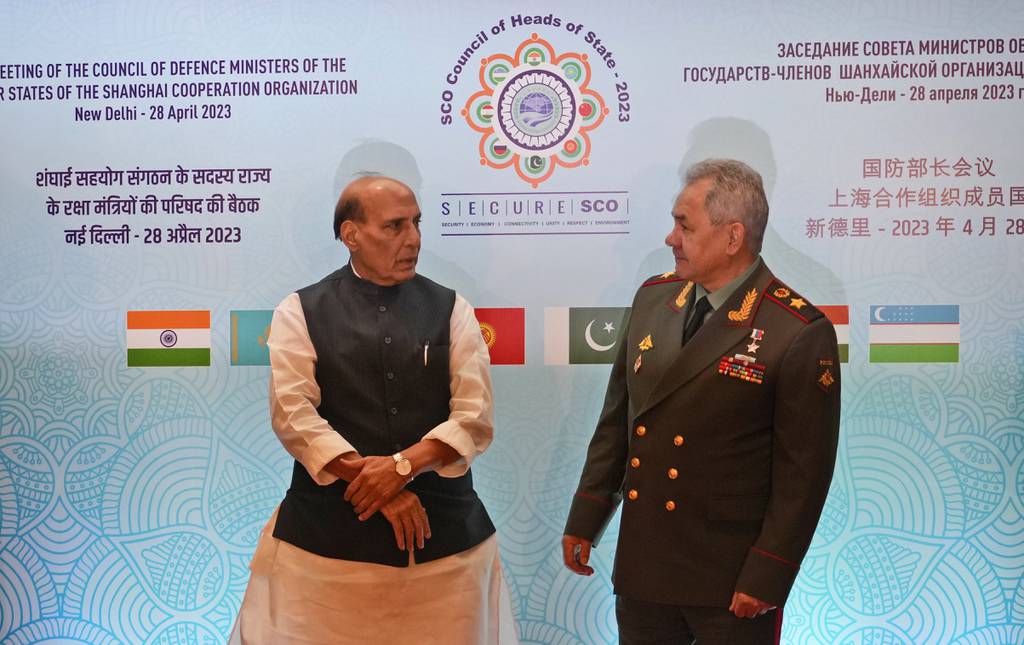
This story was updated May 4, 2023, at 4:17 p.m. ET.
NEW DELHI — India and Russia are formalizing a plan for the local production of Russian defense equipment and spare parts following a meeting between their defense ministers.
The initiative comes as India and China are caught up in a territorial dispute near their borders, and as the West implements sanctions on Moscow amid Russia’s invasion of Ukraine.
Defence Minister Rajnath Singh and his Russian counterpart Sergei Shoigu met on the sidelines of a Shanghai Cooperation Organization summit on April 28 during which they discussed military-to-military ties as well as industrial partnerships.
India’s Defence Ministry said the leaders talked about the Russian defense industry’s participation in the Indian government’s Make in India economic initiative to increase domestic production.
India is dependent on Russia for up to 60% of its arms purchases, and Prime Minister Narendra Modi’s government is trying to set up joint ventures to develop the domestic industry.
The two ministers also discussed regional peace and security and reiterated their commitment to strengthen the partnership between the two nations, particularly in defense, the ministry said.
Russian Embassy spokesman Dimitry Solodov did not respond to multiple requests for comment.
As part of the bilateral plan, state-run defense entities that could seek joint ventures with Russian original equipment manufacturers include: Armoured Vehicles Nigam Ltd.; Advanced Weapons and Equipment India Ltd.; Bharat Electronics Ltd.; Bharat Dynamics Ltd.; Bharat Heavy Electricals Ltd.; Hindustan Aeronautics Ltd.; India Optel Ltd.; and Munitions India Ltd.
Private defense firms include: Ananth Technologies; Bharat Forge; Indesys Equipments; MKU Ltd.; and PTC Industries.
Likewise, Russian manufacturers that could participate include: Uralvagonzavod; Tecmash; Bazalt; Tactical Missiles Corp.; NPO Mashinostroyenia; United Aircraft Corp.; Russian Helicopters; Oboronprom; Almaz-Antey; United Engine Corp.; United Shipbuilding Corp.; Zvezdochka Ship Repair Center; Admiralty Shipyards; Aerospace Equipment Corp.; and Urals Optical and Mechanical Plant.
“I have no doubt that Indian companies, including a large number of our small-scale enterprises, can manufacture spares, assemblies and subassemblies,” Amit Cowshish, a former financial adviser at India’s MoD, told Defense News.
But Cowshish said he doubts this bilateral arrangement is feasible given the need for varying degrees of cooperation, which is unlikely to take place.
Alternatively, he explained, Indian companies could develop products with indigenous designs or in technical collaboration with countries that have both used Russian-origin equipment and have developed stronger technical capabilities than India.
For his part, retired Indian Air Force squadron leader and independent Russian military affairs expert Viajinder Thakur said the Make in India deal may not work as expected.
“Russian OEMs likely don’t have the bandwidth to help India localize [the] manufacture of spares, as the Russian military-industrial complex, or MIC, is working on a war footing for its own requirements,” Thakur told Defense News. “But India may not need the help of Russian OEMs. Under the arrangement, Indian companies can obtain the specification and drawings from Russia to facilitate local manufacture. Indian MIC needs to similarly work on a war footing. There is no other solution.”
Thakur added there can be little doubt the flow of Russian spares to India will remain constrained as long as Moscow is at war.
“Also, Russia’s ability to supply spare parts as well as manufacturing capability is likely to be constrained by Western sanctions,” Thakur said. “Long term, India’s best option is to localize production of Russian equipment spares.”
Ashok Sharma with The Associated Press contributed to this report.
Vivek Raghuvanshi is the India correspondent for Defense News.
- SEO Powered Content & PR Distribution. Get Amplified Today.
- PlatoAiStream. Web3 Data Intelligence. Knowledge Amplified. Access Here.
- Minting the Future w Adryenn Ashley. Access Here.
- Buy and Sell Shares in PRE-IPO Companies with PREIPO®. Access Here.
- Source: https://www.defensenews.com/global/asia-pacific/2023/05/04/russia-to-bolster-support-for-indias-defense-industry/
- :is
- :not
- ][p
- $UP
- 2023
- 28
- 70
- a
- ability
- About
- added
- advanced
- Aeronautics
- Aerospace
- Affairs
- AIR
- Air Force
- aircraft
- also
- Amid
- and
- April
- ARE
- arms
- arrangement
- AS
- associated
- At
- Bandwidth
- BE
- BEST
- between
- bolster
- borders
- both
- by
- CAN
- capabilities
- caught
- Center
- China
- collaboration
- comes
- comment
- commitment
- Companies
- complex
- contributed
- cooperation
- Corp
- could
- Counterpart
- countries
- deal
- defence
- Defense
- Delhi
- dependent
- designs
- develop
- developed
- DID
- discussed
- Dispute
- Domestic
- Dont
- doubt
- Drawings
- during
- dynamics
- E&T
- Economic
- Electronics
- Engine
- enterprises
- entities
- equipment
- expected
- expert
- explained
- facilitate
- feasible
- financial
- firms
- flow
- following
- For
- Force
- forge
- Former
- from
- given
- Government
- Have
- he
- heavy
- helicopters
- help
- his
- HTTPS
- images
- in
- include
- Including
- Increase
- independent
- india
- Indian
- industrial
- industries
- industry
- industry’s
- Initiative
- invasion
- ITS
- joint
- joint ventures
- jpg
- large
- leader
- leaders
- likely
- little
- local
- Long
- Ltd
- make
- Manufacturers
- manufacturing
- May..
- mechanical
- meeting
- Military
- ministers
- ministry
- missiles
- Moscow
- multiple
- Nations
- Near
- Need
- needs
- news
- no
- number
- obtain
- of
- on
- Option
- or
- organization
- original
- Other
- our
- own
- part
- participate
- participation
- particularly
- Partnership
- partnerships
- parts
- peace
- Place
- plan
- plato
- Plato Data Intelligence
- PlatoData
- press
- Prime
- prime minister
- Production
- Products
- ptc
- purchases
- regional
- remain
- repair
- report
- requests
- Requirements
- Respond
- Russia
- russian
- Said
- Sanctions
- security
- Seek
- set
- shanghai
- Sharma
- Similarly
- solution
- specification
- Story
- Strengthen
- stronger
- Summit
- supply
- support
- tactical
- Take
- Technical
- Technologies
- than
- that
- The
- The West
- their
- There.
- they
- this
- Ties
- to
- two
- under
- United
- updated
- used
- Vehicles
- Ventures
- war
- was
- Weapons
- WELL
- West
- Western
- which
- will
- with
- Work
- working
- zephyrnet






